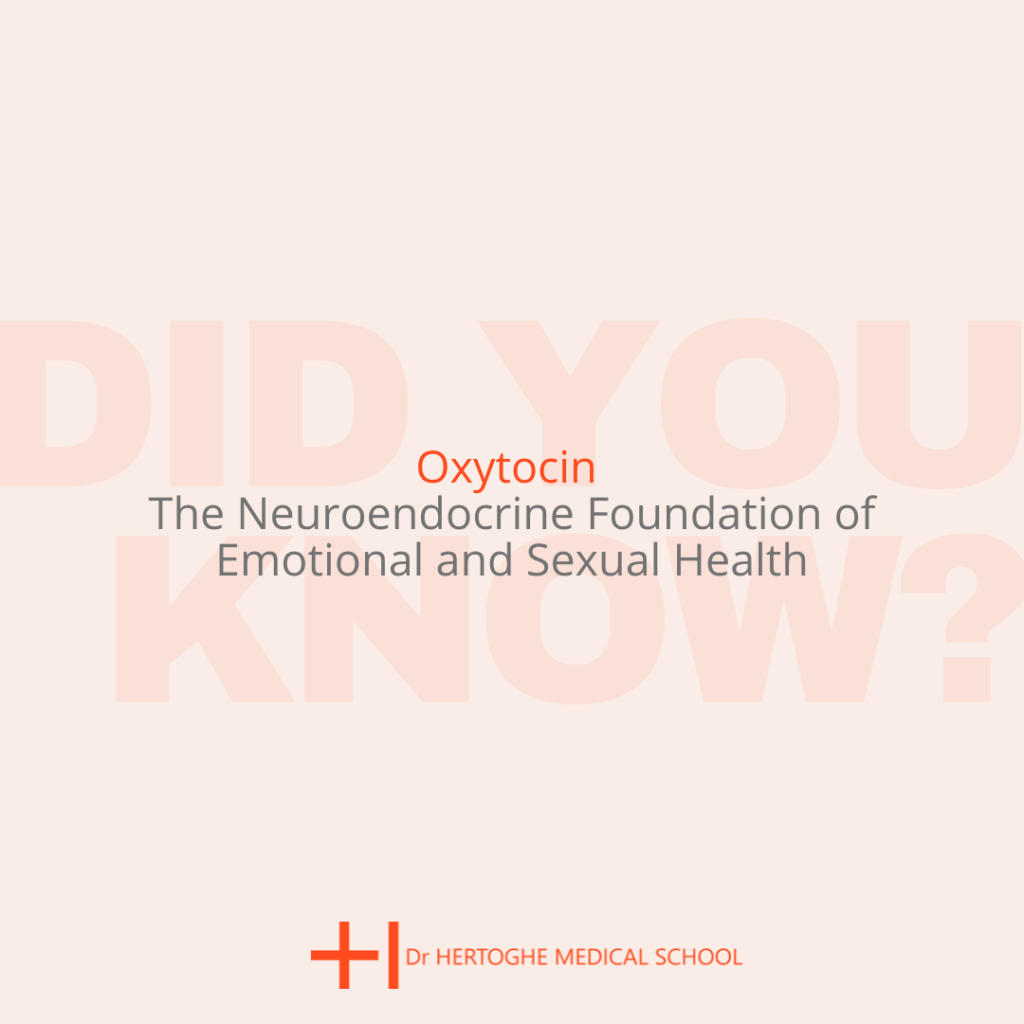Oxytocin: The Neuroendocrine Foundation of Emotional and Sexual Health

Oxytocin: More Than the “Love Hormone”
Oxytocin is a neuropeptide produced in the hypothalamic paraventricular and supraoptic nuclei and released both centrally and peripherally.
Initially recognized for its role in uterine contractions and lactation, oxytocin has since been identified as a key modulator of social behavior, trust, emotional connection, and sexual satisfaction.
Its physiological effects extend to the heart, reproductive organs, and brain, where it shapes emotional resilience, attachment, and even protective mechanisms against inflammation and cancer.
The Impact of Aging on Oxytocin
Scientific studies reveal a progressive decline in circulating oxytocin levels with age.
In humans, serum levels can fall by up to two-thirds between early adulthood and the age of 70, while animal models confirm similar reductions in both circulating hormone and receptor density.
Clinically, this decline manifests as reduced emotional warmth, diminished social engagement, and a tendency toward isolation and indifference.
In contrast, oxytocin-rich individuals often display openness, empathy, and an ability to create and sustain strong interpersonal bonds, qualities that are central to mental and social health.
Emotional Wellness
Oxytocin strengthens positive emotional processing. It enhances the brain’s ability to encode and recall positive social information, supports affectionate touch and synchrony in relationships, and mitigates the physiological stress response.
In clinical research, intranasal oxytocin administration has been shown to increase positive communication during conflicts, reduce cortisol secretion, and amplify empathy and trust between partners.
These effects are primarily linked to an amplification of positive emotions rather than a suppression of negative ones, suggesting that oxytocin acts as a facilitator of emotional connection and resilience rather than a simple mood regulator.
Sexual Health
In both men and women, oxytocin is a central player in sexual motivation, arousal, and orgasmic response.
It enhances sensitivity to touch, strengthens emotional bonding during sexual activity, and increases orgasm frequency and intensity.
Beyond pleasure, oxytocin promotes selective attachment, increasing attraction and loyalty toward one’s partner while reducing interest in others.
Such effects are not purely psychological: neuroimaging studies reveal oxytocin-induced activation in reward regions such as the ventral tegmental area and nucleus accumbens, reinforcing pair-bonding behaviors and long-term relationship stability.
Clinical Insights: From Deficiency to Therapeutic Us
Oxytocin deficiency may manifest as emotional detachment, social withdrawal, reduced trust, substance-seeking behavior, and sexual dysfunction.
Restoring optimal oxytocin activity, through lifestyle interventions, interpersonal therapy, or medically supervised supplementation, can significantly improve emotional and sexual wellbeing.
Intranasal or sublingual oxytocin formulations have been studied in over 400 placebo-controlled trials, demonstrating benefits in mood regulation, social behavior, and sexual function.
However, as with all hormones, balance is essential: excessive oxytocin may lead to dependence or reduced cortisol activity. Careful dosing and monitoring ensure that this powerful molecule supports rather than overwhelms emotional physiology.

